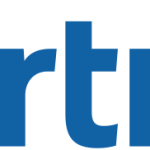- Branche: Consulting
- Number of terms: 1807
- Number of blossaries: 2
- Company Profile:
Gartner delivers technology research to global technology business leaders to make informed decisions on key initiatives.
Repetitive, regularly timed signals used to control synchronous processes.
Industry:Technology
1. Loss of parts of words or of syllables in the operation of voice-actuated devices.
2. Distortion of a signal that has reached the limit of its modulation parameter (e.g., amplitude) and can no longer be effectively modulated.
Industry:Technology
Clinical resource management is the capability to manage the resources of a clinical trial, such as investigative sites, contract research organizations (CROs), clinical study staff, supplies, relationships and patients. It represents the capabilities to plan, manage and execute clinical study activities using tools that simulate trial protocol implications, estimate resource consumption, respond to change, and implement tools to manage resource utilization and effectiveness.
Industry:Technology
Clinical kiosks are completely self-contained units, fixed or portable, that allow patients to have a full diagnostic and/or clinical treatment interaction with a physician, without the need for on-site personnel. Clinical kiosks are self-service platforms that perform clinical functions, including taking certain clinical and biometric readings, completing tests, and enabling patients to upload vital signs to a health record and to interact with a clinician through an e-visit or video visit.
Industry:Technology
The Clinical Information Modeling Initiative (CIMI) is an ad hoc group of data modelers that are attempting to enumerate the detailed models of hundreds to thousands of medical ideas to achieve consensus among clinicians. It plans to make detailed clinical models freely available as unencumbered intellectual property. They could be used as components to define standard messages or structured documents, as components of clinical rules, and to automate or facilitate constructing data entry or reporting templates.
Industry:Technology
A clinical data repository (CDR) is an aggregation of granular patient-centric health data usually collected from multiple-source IT systems and intended to support multiple uses. Because a CDR is intended to support multiple uses, we do not categorize the database within any single application as a CDR. When a CDR holds data specifically organized for analytics it meets the definition of a clinical data warehouse.
Industry:Technology
The Clinical Context Object Workgroup (CCOW) is a group that defines standards for collaboration among visual (GUI-based) applications on clinical workstations. Originally an independent consortium, CCOW is now technical committee of the Health Level Seven (HL7) standards organization.
Industry:Technology
Climate-driven forecasting incorporates the impact of weather changes on future customer demand. Traditional demand forecasting has long accounted for the seasonal impact on customer behavior. Climate-driven forecasting is a logical extension that leverages improved analytics and the availability of structured and unstructured data. Some of the climate-driven forecasting solutions exploit existing demand signal repositories, but others rely on proprietary databases.
Industry:Technology
The splitting of an application into tasks performed on separate computers connected over a network. In most cases, the “client” is a desktop computing device (e.g., a PC) or a program “served” by another networked computing device (i.e., the “server”). Gartner has defined five styles of client/server computing, based on how presentation, application logic and data management functions are partitioned between the client and server device — see separate definitions for “distributed presentation,” “remote presentation,” “distributed function,” “remote data management” and “distributed data management.”
Industry:Technology
Client management tools (previously known as PC configuration life cycle management (PCCLM) tools) manage the configurations of client systems. Specific functionality includes OS deployment, inventory, software distribution, patch management, software usage monitoring and remote control. Desktop support organizations use client management tools to automate system administration and support functions that would otherwise be done manually.
Industry:Technology
